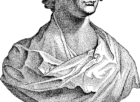Orlando Virginia Woolf: A Journey Through Time

Introduction:
Orlando Virginia Woolf, a novel written by the acclaimed modernist writer Virginia Woolf, is a fascinating exploration of gender, identity, and the fluidity of time. Considered a landmark work in feminist and LGBTQ+ literature, Orlando has captivated readers with its unique narrative style and thought-provoking themes. In this article, we will delve into the intricacies of Orlando Virginia Woolf, providing essential information and a historical overview for those interested in this compelling piece of literature.
I.
Understanding Orlando Virginia Woolf

At its core, Orlando Virginia Woolf examines the concept of identity and its transformation over time. The novel follows the titular character, Orlando, who begins as a young nobleman in Elizabethan England and undergoes a stunning metamorphosis into a woman, living for centuries and experiencing various historical eras. The exploration of Orlando’s gender fluidity and the self-discovery that accompanies it challenge societal norms and create a space for profound introspection.
The novel also tackles themes of love, relationships, and the complexities of human emotions. As Orlando navigates through different periods, the readers are exposed to a wide range of experiences, encounters, and relationships. Virginia Woolf masterfully captures the intricacies of human connection, delving into the depths of passion, heartbreak, and the eternal quest for understanding and fulfillment.
II.
Historical Evolution of Orlando Virginia Woolf
Orlando Virginia Woolf was published in 1928, marking a significant departure from Virginia Woolf’s earlier works. Inspired by her close relationship with Vita Sackville-West, a prominent writer and member of the Bloomsbury Group, Orlando showcases Woolf’s exploration of gender and sexual identity. Drawing from Sackville-West’s own family history and infusing it with her unique narrative style, Woolf crafted a groundbreaking novel that transcended the boundaries of traditional storytelling.
Over the years, Orlando Virginia Woolf has garnered critical acclaim and has become a cornerstone in LGBTQ+ literature. Its impact on feminist movements cannot be understated, as it challenged preconceived notions of gender roles and opened up discussions surrounding identity. The novel’s timeless themes continue to resonate with readers today, solidifying its status as a literary masterpiece.
III. Structure and Formatting for Featured Snippet Optimization
Understanding Orlando Virginia Woolf
– Exploration of gender, identity, and the fluidity of time
– The story of Orlando and their transformative journey
– Themes of love, relationships, and human emotions in the novel
Historical Evolution of Orlando Virginia Woolf
– Publication and departure from Woolf’s earlier works
– Influence of Virginia Woolf’s relationship with Vita Sackville-West
– Impact on LGBTQ+ literature and feminist movements
Conclusion:
Orlando Virginia Woolf is a literary gem that continues to captivate readers through its thought-provoking themes and innovative storytelling. Virginia Woolf’s exploration of gender and identity challenges societal norms and stimulates introspection, leaving an enduring impact on the literary landscape. By delving into Orlando’s journey through time, readers are invited to reflect on their own sense of self and the complexities of human connections. Orlando Virginia Woolf is not just a novel; it is a transformative experience that will stay with readers long after the final page.











